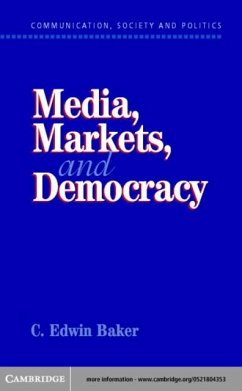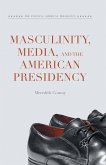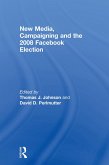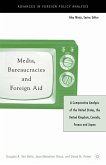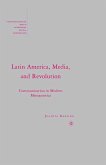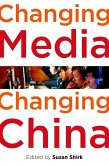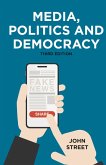Government interventions in media markets are often criticized for preventing audiences from getting the media products they want. A free press is often asserted to be essential for democracy. The first point is incorrect and the second is inadequate as a policy guide. Part I of this book shows that unique aspects of media products prevent markets from providing for audience desires. Part II shows that four prominent, but different, theories of democracy lead to different conceptions of good journalistic practice, media policy, and proper constitutional principles. Part II makes clear that the choice among democratic theories is crucial for understanding what should be meant by free press. Part III explores international free trade in media products. Contrary to the dominant American position, it shows that Parts I and II's economic and democratic theory justify deviations from free trade in media products.
Dieser Download kann aus rechtlichen Gründen nur mit Rechnungsadresse in A, B, BG, CY, CZ, D, DK, EW, E, FIN, F, GR, HR, H, IRL, I, LT, L, LR, M, NL, PL, P, R, S, SLO, SK ausgeliefert werden.

